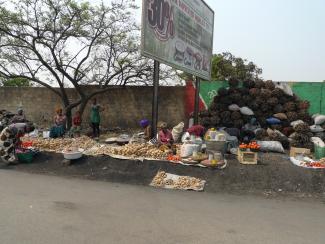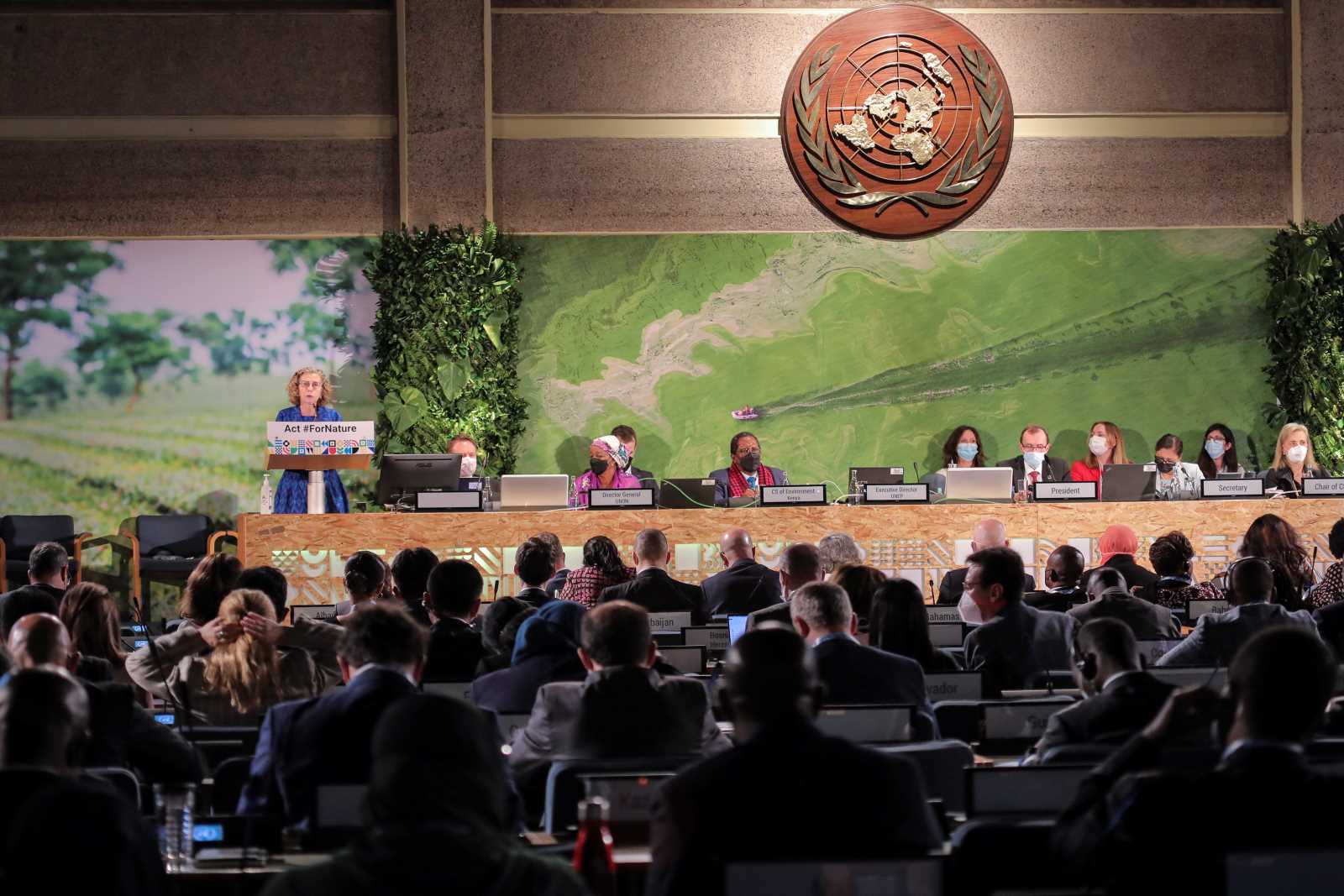Governance
Debt situation is escalating in many developing countries

During the pandemic, in 2020, total global debt rose to 263 % of global gross domestic product (GDP), according to the World Bank. That was the highest level in half a century. Private and public debts increased fast in industrialised nations, emerging economies and developing countries, with loans being sourced domestically and abroad (see Roli Mahajan on www.dandc.eu). The International Monetary Fund (IMF) reckons that 60 % of low-income countries were heavily indebted in 2022. The comparative share for 2015 was only about 30 %.
It matters very much that, in many countries, debt services in relation to exports rose considerably. In sub-Saharan Africa, for example, they increased from 16 % in 2019 to 22 % in 2020. The implication is that a greater share of exports revenues had to be used for debt servicing, reducing the scope of investments in sustainability-related matters.
Large budgetary deficits
In many developing countries and emerging markets, the deficits in government budgets have skyrocketed. In sub-Saharan Africa as a whole, according to the IMF, the deficit was -3.9 % in 2019, but -6.4 % in 2020. The figures were worse for oil-importing countries (-4.3 % in 2019 and -7.3 % in 2020) than for oil-exporting countries (-3.3 % and – 4.6 % respectively).
The deficits were incurred to cope with costs of the pandemic. At the same time, tax revenues decreased in many countries. In sub-Saharan Africa, taxation tends to be quite a bit lower than in high-income countries.
War in Ukraine
The Russian invasion of Ukraine in February has made matters worse. It has led to yet higher debts and surges in inflation. Especially the increase in energy and food prices are a burden on national budgets and foreign trade balances. Commodity-importing countries are affected in particular.
Monetary policy has tightened in many high-income countries, causing interest rates to rise on international financial markets. Debt servicing is thus becoming more expensive. Heavy debts stand in the way of economic recovery and will have long-term impacts in business as well as social terms. It is also to be feared that investments to combat climate change will decline.
Ways out of debt
To manage debt crises, the countries concerned need reforms as well as external support. Their fiscal power is too small. The international community created new policy instruments during the pandemic and should now make full use of them. The Group of 20 major industrialised and emerging economies (G20) has adopted two instruments of relevance to developing countries.
- The Debt Service Suspension Initiative (DSSI) is a debt moratorium for low-income countries to solve short-term liquidity problems. During the moratorium period from May 2020 to December 2021, it has been used by 48 of the 73 eligible countries.
- The Common Framework for debt treatment beyond DSSI is designed to restructure and – if necessary – even forgive debts accrued by low-income countries. The idea is to prevent both sovereign defaults and long-lasting payment difficulties. So far, however, only three countries have taken part: Chad, Zambia and Ethiopia (see a previous contribution of mine on www.dandc.eu).
Implementation has been delayed mainly due to coordination difficulties among creditors (Georgieva, K./C. Pazarbasioglu, 2021). Involving all private and public creditors would help. Moreover, transparency regarding loan conditions is needed. Otherwise, equal treatment of creditors cannot be ensured. It would make sense to expand the Common Framework beyond low-income countries, given that middle-income countries are struggling too. Moreover, an insolvency procedure for sovereign states is necessary.
In the longer run, it would be good to draft and adopt codes of conduct for responsible lending and borrowing. The international community should support related initiatives. Relevant institutions, such as the G20, the UN, the OECD and the Institute of International Finance have drafted such codes and are enforcing them to some extent. To avoid divergence, these codes should be acknowledged and harmonised internationally (Berensmann 2022).
Build back better
The pandemic proved that our societies are susceptible to shocks. At the same time, we now have the opportunity to build back better in ways that boost future resilience. Current financial crises should be seen as opportunities to restructure debts with an eye to promoting sustainable development (Volz et al. 2021).
The implication is that the Common Framework should be linked to investments in climate action. Debt relief and debt restructuring should be geared to achieving the sustainable development goals of the UN’s 2030 agenda as well as fulfilling the aspirations of the Paris Climate Agreement. In a similar sense, the toolkit of multilateral development banks should serve these purposes too (Berensmann et al. 2022).
Global heating is causing financial harm. Therefore, debt sustainability assessments must take climate-related risks into account. Investments in climate adaptation should count too, since they reduce climate risks. The IMF is currently working on proposals concerning how to mainstream climate issues in fiscal policy (Massetti / Bellon 2022).
Tax reforms
Developing countries, however, must mobilise more domestic resources and become less dependent on foreign debt. Raising more tax revenues is absolutely essential. Both tax administration and tax policy should improve. To broaden the tax base, tax systems must become more transparent, more efficient and more effective. The informal sector should not remain beyond taxation. Technical assistance from high-income countries should prove useful, especially in regard to the digitalisation of national revenue services.
The internationals tax system must improve too. That is essential for stemming illicit financial flows, tax evasion and tax avoidance. The African Union Commission reckons that illicit financial flows annually deprive African governments of some $ 50 billion to $ 80 billion (AU Commission, 2019). These estimates are by definition difficult, but the figures are definitely huge.
Two important initiatives are:
- The establishment of the Global Forum on Transparency and Exchange of Information for Tax Purposes
- The OECD/G20 Inclusive Framework on Base Erosion and Profit Shifting (BEPS).
The Global Forum is the most important international institution for fighting tax evasion and tax avoidance. It is enhancing transparency in the international tax system and currently has 165 members. Its secretariat is hosted by the OECD. The Inclusive Framework on BEPS is designed to fight tax evasion, boost the coherence of international tax rules, increase the transparency of tax systems and support taxes on digital businesses (von Haldenwang / Laudage 2019). Donors should increase the technical assistance they offer developing countries in this field.
The developing countries, in turn, must improve their debt management and use their fiscal means more efficiently. Important dimensions include balancing foreign and domestic debts carefully as well as paying appropriate attention to both interest rates and the duration of loans. Good debt management also leads to greater transparency and can drive the growth of domestic bond markets. Such markets can provide a good source of income for developing countries.
References
AU Commission, 2019: Domestic resource mobilization: Fighting against corruption and illicit financial flows. AUC Publishing, Addis Ababa.
Berensmann, K., Ekeruche, M. A., Heitzig, C., Ordu, A.,Senbet, L. W., 2022: Resolving debt crises in developing countries – How can the G20 contribute to operationalising the Common Framework?; T20 policy brief, Jakarta.
Berensmann, K., 2022: How could a new universal code of conduct prevent and resolve sovereign debt crises? Proposals for design and implementation. Journal of Economic Surveys, Wiley.
Georgieva, K., Pazarbasioglu, C., 2021: The G20 Common Framework for Debt Treatments must be stepped up. IMF Blog, 2 December 2021.
Von Haldenwang, C., Laudage, S., 2019: Financing for development and domestic revenue mobilisation: more international reforms are needed. Briefing Paper 13/2019, Bonn, German Development Institute (DIE).
www.die-gdi.de/briefing-paper/article/financing-for-development-and-domestic-revenue-mobilisation-more-international-reforms-are-needed/
Massetti, E., Bellon, M., 2022: Planning and mainstreaming adaptation to climate change in fiscal policy. IMF staff Climate note, 23 March, Washington D.C.
Volz, U., Akthar, S., Gallagher, K., Griffith-Jones, S., Haas, J, 2021: Debt relief for a green and inclusive recovery: Securing private-sector participation and creating policy space for sustainable development. Heinrich Böll Stiftung, Berlin.
Kathrin Berensmann is a senior researcher and project leader at IDOS, the German Institute of Development and Sustainability. She would like to thank Sabine Laudage for valuable comments.
kathrin.berensmann@idos-research.de
















